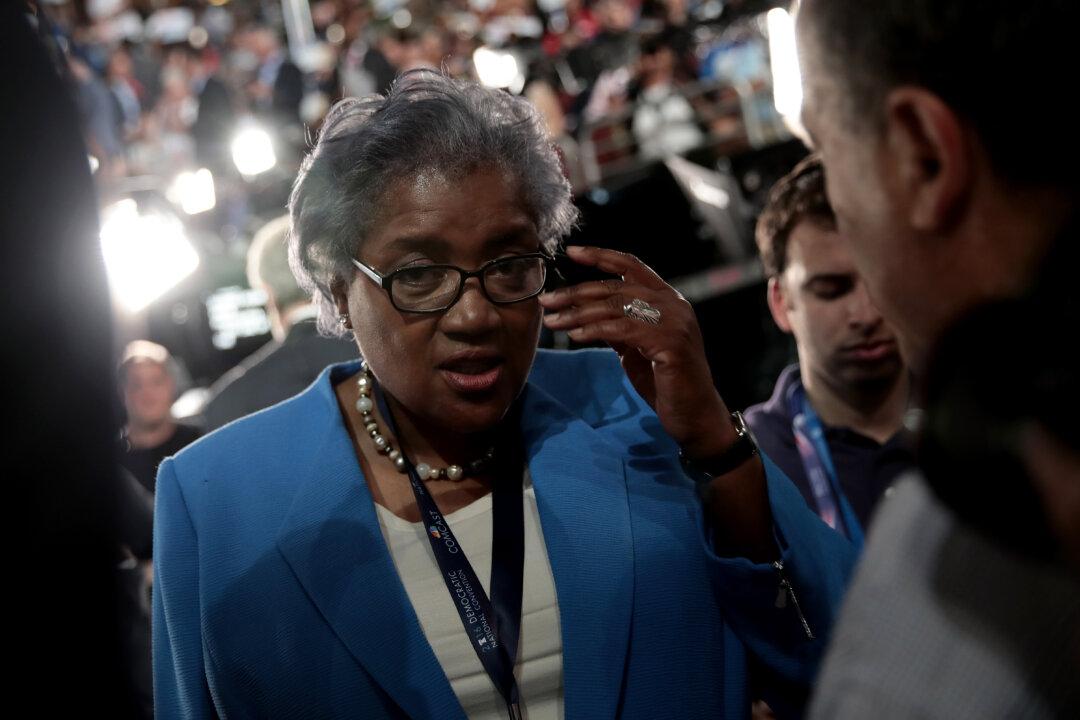The Democratic National Committee last month denied a claim made by its former chairwoman, Donna Brazile, about the timeline of the hacking of the committee’s computer systems, the latest of many contradictions related to the crucial days when thousands of emails were allegedly stolen from the party’s mail server.
In her 2018 book, Brazile wrote that after learning that alleged Russian hackers were inside its systems, the Democratic National Committee (DNC) asked CrowdStrike, the cybersecurity firm it hired to defend against the hack, to wait one month before kicking out the intruders.





